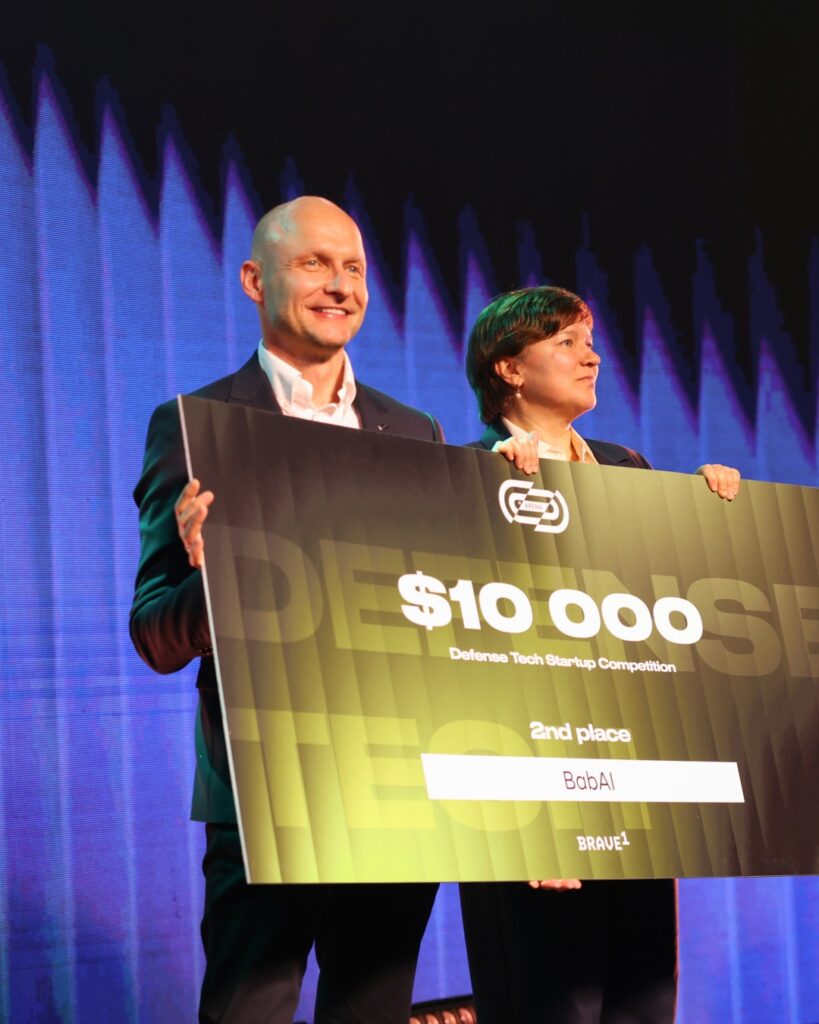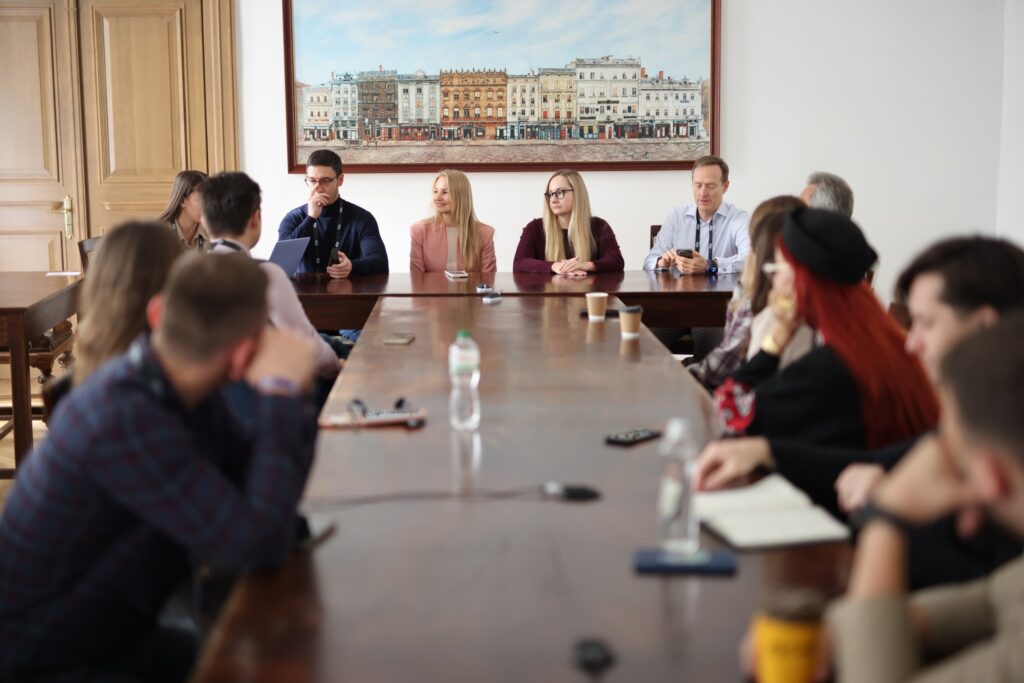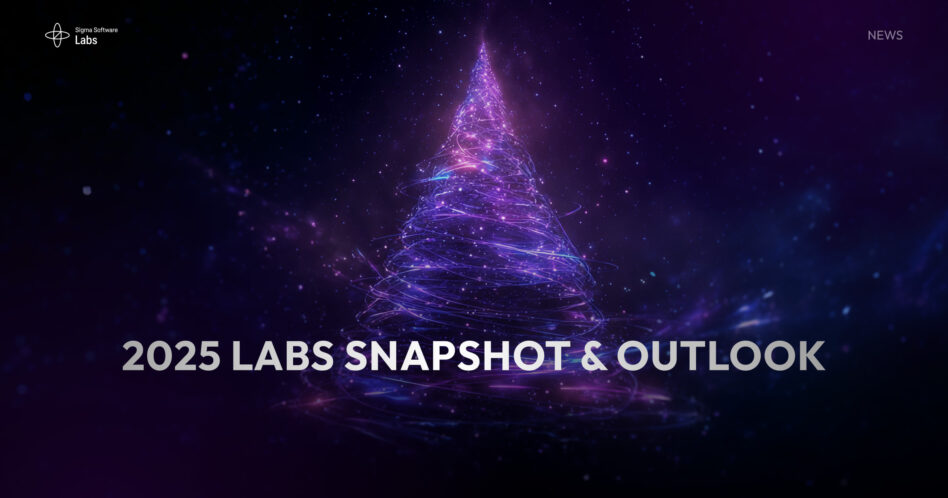Every autumn, Ukraine’s tech ecosystem gathers in Lviv for IT Arena – a meeting point for founders, investors, IT companies, government, and defense innovators shaping the country’s future.
This year, Sigma Software Labs joined with a hands-on role – moderating the Defense Track, hosting meetups, and supporting startups. For us, IT Arena 2025 wasn’t just another conference – it was where we showed how Ukraine’s ecosystem connects business, technology, and defense.
Moderating the Defense Track: Real Tech, Real Impact
This year’s Defense Track opened with the panel “Ukrainian Defense Tiger: Why Invest Now,” with Daria Yaniieva, our Investment Director at Sigma Software Labs, as a speaker. Together with Tisho Jenkut (Presto Tech Horizons), Cristobal Alonso (Wolver Ventures), Justin Zeefe (Green Flag Ventures), and Kollen Post (The Kyiv Independent), she discussed how Ukraine’s defense sector evolved from necessity to opportunity – and why investors are looking here for the next generation of dual-use technologies.
Throughout the next two days, Daria moderated the Defense Startup Stage, where 23 defense and dual-use startups showcased their ideas. Out of these, six teams advanced to the main stage, competing for a $60,000 prize fund and the attention of investors.

Two of the finalists came from the Defence Builder Accelerator, co-founded by us with the Kyiv School of Economics and Buntar Aerospace.
BabAI took second place and a $10,000 prize for its AI-powered active protection system, while DronemateAI joined the top teams and is already on investors’ radar.
“In Ukraine, defense technology evolves faster than anywhere else in the world. These are not prototypes – these are solutions tested, proven, and ready to scale. Our mission is to help them reach global markets,”
said Daria Yaniieva, Investment Director at Sigma Software Labs.
Peer to Peer: Stories That Build Communities
Beyond the stage, Labs brought the human side of innovation to life. Together with Win-Win EDIH Ukraine, we joined the meetup “Peer to Peer: Inspiring Stories – Connecting Visionaries, Shaping the Future” – a space for honest conversations about building, leading, and learning in uncertain times. Around 40 conference participants gathered to listen to real stories – not pitches or panels, but experiences that inspire.
Among the speakers were Kyrylo Hrinchak (Sigma Software Labs), David Nichols (Qore Technologies / Invest in Bravery), Maryna Krasnoshchok (World Bank), and Antonina Yermeichuk (Deus Robotics), who shared how collaboration turns ideas into products and partnerships into lasting impact.

The conversation touched on how authentic collaboration – between corporates, founders, and government – helps transform ideas into products, and partnerships into ecosystems.
It wasn’t a formal panel, but an open, sincere exchange – the kind that reminds you why innovation grows fastest where trust and community come first.
Ecosystems as the Ultimate Growth Multiplier
On the final day, Sigma Software Group hosted another unique meetup – “Ecosystems as the Ultimate Growth Multiplier,” moderated by Daria Yaniieva. The panel included Maksym Pochebut (Sigma Software University), Serhii Yedokymov (Sigma Software Unity Fund), Line Rindvig (Defence Builder), and Illia Kabachynskyi (Scroll Media). Together, they explored how education, venture capital, and media reinforce each other – creating the foundation for long-term business growth.
Panelists shared real cases from across the Sigma Software ecosystem, showing how cross-functional collaboration drives resilience and scalability even in uncertain times.

Three Days That Moved the Ecosystem Forward
Three days at IT Arena turned into dozens of conversations, connections, and ideas that will shape what comes next. For us, the event highlighted Ukraine’s role as a living innovation ecosystem – where defense, education, and investment merge to create solutions the world needs today.
Labs in Lviv are not just to participate – but to show what happens when ecosystems act, not talk. And this year, Ukraine’s defense and tech innovators proved: they already do.

